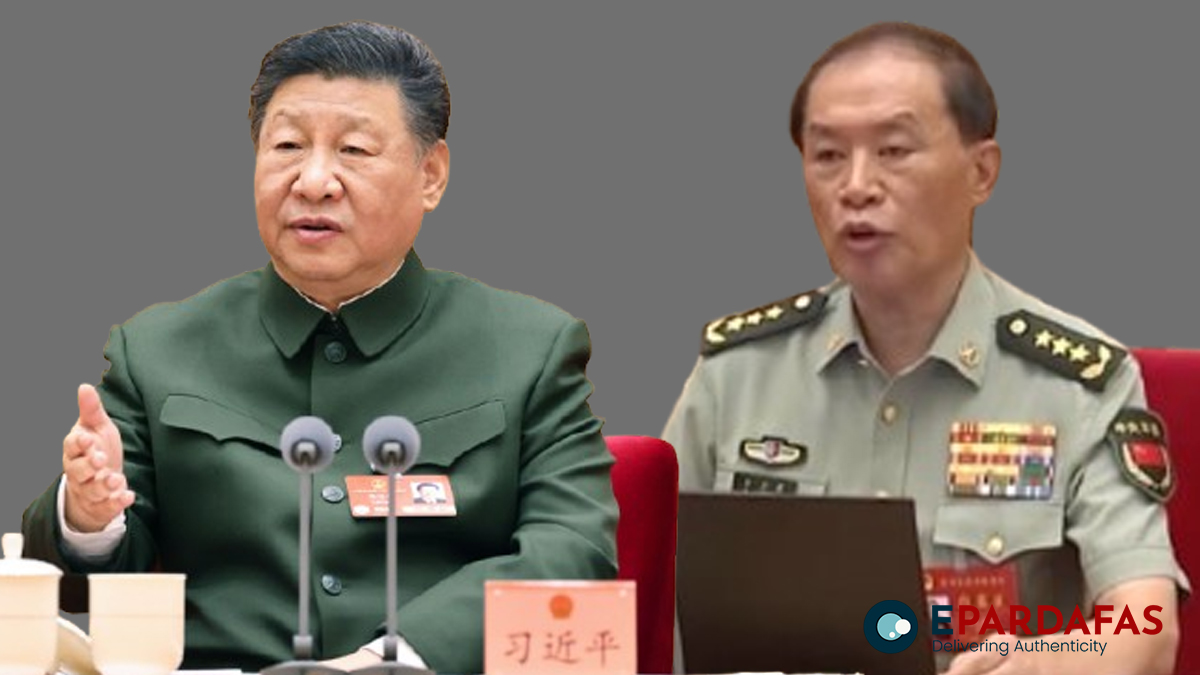
Top Chinese Military Official He Weidong Disappears Amid Corruption Allegations
General He Weidong, the vice chairman of China’s powerful Central Military Commission (CMC), has not been seen in public for over a month, raising speculation that he may have been removed from his post amid a corruption probe. If confirmed, this would mark the first time in nearly six decades that a uniformed vice chairman of the CMC has been dismissed.
The Financial Times reported on Friday that General He, who ranks second in China’s military hierarchy after Zhang Youxia and is considered a close ally of President Xi Jinping, is believed to be under investigation for corruption. The Washington Times also reported his downfall in March, citing a U.S. defense official.
General He was last publicly seen on March 11 during the closing session of the National People’s Congress. He was notably absent from a long-standing annual tree-planting ceremony in Beijing on April 2, an event that top military officials have attended for more than four decades. Vice Chairman Zhang Youxia participated as usual, further highlighting He’s conspicuous absence.
His disappearance also extended to the recent Central Peripheral Work Conference in Beijing—a key diplomatic event—where he was missing from the list of 24 Politburo members shown in footage aired by state broadcaster CCTV.
General He’s military career is closely tied to Xi Jinping’s political base in Fujian province. He previously served with the 31st Group Army and as the commander of the Eastern Theater Command, which oversees operations related to Taiwan. His rise to vice chairman in October 2022 was seen as an unusual and rapid promotion, bypassing the traditional route through the Communist Party’s Central Committee.
With He’s apparent removal, the seven-member CMC, the top decision-making body of the People’s Liberation Army, is now effectively operating with only four members. Former Defense Minister Li Shangfu was previously ousted over bribery charges, and another member, Miao Hua, is under investigation for serious disciplinary violations.
The leadership vacuum within the CMC raises concerns about the continuity of command and the effectiveness of military governance at a time of increasing regional tensions.
President Xi’s sweeping anti-corruption campaign, initiated in 2012 with the vow to eliminate both “tigers and flies,” has previously taken down several top military leaders, including Guo Boxiong, a former top general linked to the Jiang Zemin era.
Although initially seen as a strategy to clean up the military and consolidate Xi’s power, the campaign has persisted into Xi’s third term, now targeting not just military figures but also executives in China’s powerful defense sector. Analysts believe that Xi’s push for “military-civilian integration,” intended to modernize the military using civilian technologies, has inadvertently created opportunities for collusion and corruption between the defense industry and senior officials.
As investigations continue and top brass remain under scrutiny, the instability within China’s military leadership may have far-reaching implications for national security, defense strategy, and President Xi’s grip on power.
- Rastriya Swatantra Party MP Challenges PM Over Corruption at Pokhara International Airport
- Contempt of Court Case Filed Against Nepali Congress General Secretary Gagan Thapa
- Over Five Billion Rupees in Unspent Budget Returned to State Treasury
- Depleting Water Sources in Mustang Threaten Agriculture and Livestock













Comments